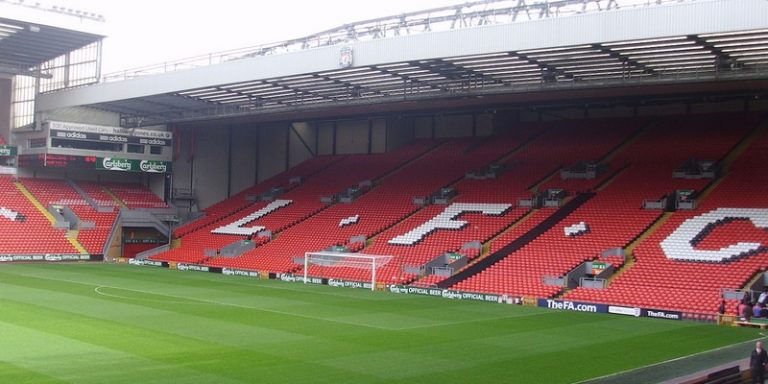
The use of new technologies, including artificial intelligence, in the field of sport is progressing more and more. This is one of the themes of the fourth issue of our magazine, to be published on 18 May. In football, for example, since the 1950s, the number of players has increased.ince the 1950s, the number of passes, shots, favourable or unfavourable situations have been recorded and these statistics are used to determine whether a player or a team has played correctly. DeepMind, the Alphabet subsidiary, has partnered with Liverpool FC so that its artificial intelligence systems can be used to create a powerful virtual assistant coach. It will help the English club’s (very real) coach make better decisions about tactics or the players he wants to start.
A partnership between a football club and a firm specialized in artificial intelligence
Liverpool Football Club has signed a partnership with DeepMind, Google’s AI company, to use AI models to better analyse data from a football match or training session. In order for this to work, Liverpool provided DeepMind with data from all matches played during the 2017-2018 and 2018-2019 seasons. All of this information and statistics were gathered by the many sensors, GPS trackers and computer vision algorithms that scanned the players as well as the ball.
The Alphabet subsidiary is known to have designed AIs that have beaten experts in the game of Go or even online video game players. But as DeepMind AI researcher Karl Tuyls says: “A game like football is very interesting because there are a lot of agents present, plus the competitive and collaborative aspects.” Unlike Go or chess, football has uncertainty factors, as it is played in the real world and is not modelled by an algorithm or a board.
But despite the variables and uncertainty, there is no evidence that the sport has only unpredictable factors. That’s what DeepMind and Liverpool think, in any case, and they want to use the large amount of data that the English club has so that their AI models can be trained to make projections on certain actions performed by players (such as a deep pass or a sprint).
Artificial intelligence to make predictions
DeepMind’s goal is to help coaches refine their tactical choices and team composition. For example, the company analyzed more than 12,000 penalties taken during Champions League and Europa League matches in recent seasons. Each player was then ranked according to their style of play and how the penalty was taken. Some of the findings were quicker than if the data had been analysed manually: strikers are more likely to want to aim for the left-hand corner than midfielders. In fact, the algorithm even favoured one way of taking the penalty rather than another, namely aiming at the same side as your strong foot. This could help goalkeepers make their decision when taking a penalty kick.
Other models may be able to estimate how much a specific action such as a missed tackle or pass contributed to a goal or a big play. These statistics are associated with expected goals (xG), an indicator that judges the quality of a goal action between 0 and 1. If the value is close to 0, it would have been very difficult for the player to score a goal, but if the value is close to 1, the action should normally convert into a goal. This value is determined by taking into account all the situations similar to the one we want to evaluate, and the algorithm counts the number of times there was a goal. If most of these situations have led to a goal, the value will be closer to 1.
Football in the digital age
Another AI system will analyse the players’ performance, power and fitness. The coach will be able to access information related to the state of fatigue of the footballers, which could, for example, limit their injuries. Karl Tuyls says AI will not replace coaches, but its impact could be felt over the next decade:
“We are not trying to make robots, we are trying to improve the way humans play football. I don’t think we’ll see any changes in the next six or 12 months. But in the next five years, the tools will be more developed. Then you’ll see automatic video assistant coaches, which will help with pre- and post-match analysis.”
He also adds that the virtual assistant could one day be so good that it could analyse the first half of a football match and offer advice to the coach so that he or she can make proper tactical adjustments and substitutions during the second half. However, DeepMind researchers caution that the data produced by their algorithms must be analyzed and used by experts to avoid certain faulty reasoning or conclusions.
Translated from Un club de football anglais s’associe avec DeepMind pour améliorer ses performances en match









